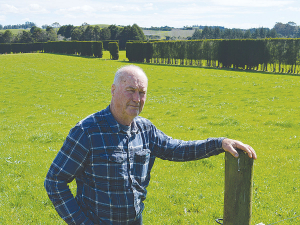His 20ha farm in Kerikeri produced about 400 tonnes of the vegetable every spring. However, when Covid struck and Heap was unable to secure seasonable labour, his successful farming business came unstuck.
Today, Heap’s highly productive land is mostly lying idle. A few hundred citrus plants are dotted around the property.
He lays the blame on the Government and industry leaders for his predicament.
“I wasn’t unable to get seasonal workers in and this impacted my ability to put another crop in 2020,” Heap told Rural News.
As early pioneer and long-standing supporter of the Recognised Seasonal Employer (RSE) scheme, Heap wants a complete overhaul of the scheme.
He believes relying on Pacific Islands for most RSE workers is wrong.
“The scheme needs to be about what’s best for New Zealand, not what’s best for the Pacific Islands,” he explains.
“To enable the hort sector to grow and prosper without being restrained by a lack of suitable seasonal and permanent labour, NZ needs to be able to compete internationally.”
Heap says the RSE processing centre in Wellington should be disbanded and recruitment decisions vested to the regions. He also believes that a cap on the RSE workers should be removed.
“I can speak from experience that a cap is open to abuse and bias, leading to some employers currying favouritism at the expense of others.”
Heap says industry leaders, including those from Hort NZ, haven’t done enough to push for more RSE workers from around the world.
One Size Does Not Fit All
Heap has been using immigrant workers on his farm for 20 years.
However, unlike many orchardists who employed Pacific islanders, Heap’s workers came from Thailand.
He recalls that then Labour Government preferred workers from the Pacific but allowed a grower to get workers from another country if they had “a working arrangement”.
Heap developed a strong relationship with a group of Thai nationals. He says his business was geared to Thai workers with specialist knowledge that reduced waste and maximised profitability.
“They have been here year after year. They know what they’re doing. They hit the ground running.”
Heap also built accommodation on his orchard for the Thai workers.
“The Thai workers pitch as a team, eat the same type of food and work well together because of their shared origin,” he told Rural News.
“If I was to introduce a Pacific Islander to the situation, it would disrupt everything from the food requirement to the working style.”
NZ farmers are also being encouraged by the Government to employ locals to plant and pick fruits and vegetables but Heap says this is a “fallacy”.
New Zealanders were usually unable to cope with hard, outdoor work and lacked specialised picking and plantcare skills developed by returning RSE workers.
Heap, who has been farming for over 50 years, has now put his farm on the market.
“It’s all just too much for me, I’ve had enough and it’s time to move on.”

















